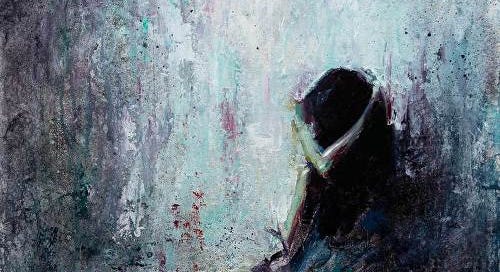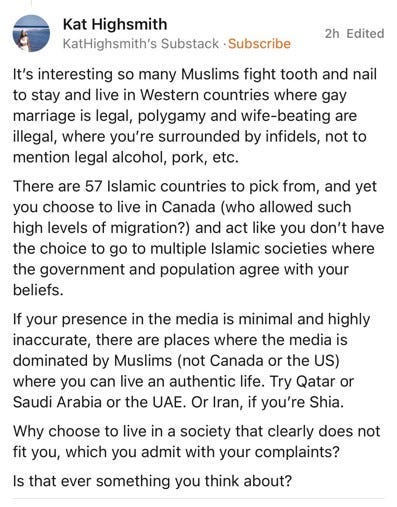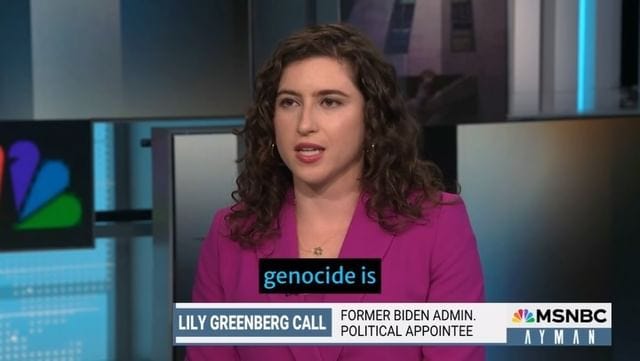About 10 days ago, a very cool thing happened to me, followed almost immediately by an awful thing. We’ll start with the good news. I woke up on Saturday morning to discover that my essay about anxiety had been featured in the most recent issue of Substack Reads, officially making me a Substack Featured Publication.
As one does, I took to Notes (the Substack social feed) and shared the news. I was thrilled and felt seen, and I included a comment about how much I believe representation matters. Then I took my two boys out for a nice, long bike ride.
A few hours later, among the congrats and support from my online community, I found this comment.
When something like this happens, I find my face flushed and my stomach in knots. Then a numbness comes over me. I am a doer, so I try to find something I can do to make the situation better.
Should I respond? What if these questions are legitimate? What if she really does want to know and she’s not trying to pull me into a bad faith argument. Am I being oversensitive? Am I reading something into the tone that isn’t there?
I reread the question, again and again, noted the references to wife-beating, the words “infidel” and “migration”. Wait, I told myself. Don’t answer. You don’t owe her your time. You don’t owe her proof that you’re civilized.
Instead of replying, I took a screenshot to share on Notes (again). The outpouring of support was heartwarming. Nevermind her, people told me. We’re glad you’re here. And then she reappeared, nested under their comments. “Answer the question. Why won’t she answer the question?” As if this was some deeper gotcha.
I wondered if she ever thought about the fact that no one would ever tell her, a white lady, to go back to where she came from. That by virtue of her whiteness, she’d be assumed to belong.
As the night wore on, I couldn’t stop thinking about her words, about the deeper question of why I live in the west, “in a society that so clearly does not fit” me, as she put it.
Part of me – the part that wants everyone to like her, the part that wants everything tied up in a bow – wanted to answer, to justify, to explain.
My commenter’s words were, at their core, a recoded, “go back to where you came from.” I’ve heard these words countless times. I guarantee you that any visible minority living in a Western society has heard these words countless times. The format and the circumstances may change, but the words are always the same.
You don’t like the way we do it here? Then go back to where you came from!
My parents came to Canada in 1973 and 1974, in their early 20s. Over the next decade, my sisters and I were born at the Grace hospital in Ottawa. When I go out for a walk in my neighbourhood, I pass the hospital where I first came into the world. So in that sense, I can’t go back to where I came from because I am literally already here.
Of course, I know this is not what this woman meant when she asked her questions. I know she wasn’t referring to the hospital I walk past each time I go to the library. I know that to this woman, “where I came from” will always be somewhere else. Somewhere far away, where she thinks they speak a guttural language, behead people, and beat their wives.
I wondered if there was a way to tell her that I’m never at home in Egypt. That even though I love it, even though I appreciate my heritage, my food, my art, my music, and my stories, the heat and the crowds of Cairo overwhelm me. That it takes weeks for my ears to adjust to the speed of my cousins’ speech. That I miss the inside jokes and tv references. That I feel like a fish out of water until my feet touch down again on Canadian soil.
I wondered if she ever thought about the fact that no one would ever tell her, a white lady, to go back to where she came from. That by virtue of her whiteness, she’d be assumed to belong. That even though my family has been on this soil for 50 years, I will never have the luxury of that assumption. That my boys will watch that clock go to 60 years, and 70 years, and 80 years, and their children will still be told to go back to another country.
I wondered if I could get her to consider why my parents had immigrated to Canada in the first place? That the default answer would be “to give their kids an opportunity for a better life,” but what does that even mean? I wondered if she’d ever considered why immigrants need to move to Canada, or the US, or somewhere in Western Europe to give their kids that opportunity? What happened in all the other places in the world to make that better life so inaccessible where they were to begin with?
I wondered if her version of history told the story of a brave Christopher Columbus discovering the Americas, and the settlers building a land of opportunity, or if it told of colonization, land theft, genocide and slavery. I thought about telling her to go watch the Australian stand-up comedian Aamer Rahman’s brilliant summary of colonization in a bit about reverse racism, but I had a feeling she wouldn’t be up for it.
I wanted to ask if she’s ever considered who gets to decide the way we do it here.
I wanted to ask if she knew the history of Turtle Island. The way the British, who eventually became the Americans and Canadians, insisted on land theft and complete assimilation of the Indigenous tribes and nations that lived here. They changed the way we do it here.
I wanted to ask if she’d heard of the repeated discoveries of mass unmarked graves of children on residential school sites across North America. Unmarked graves of Indigenous children who were stolen from their families and communities and made to live in these schools to “take the Indian out of the child.” To erase their language, their culture, their beliefs, and their ways. I wanted to ask what she thought of the untold horrors that were visited on these children, including starvation and physical and sexual abuse.
I wanted to tell her that, in spite of this, the Indigenous people of this land, the land that adopted my family, have never told us to go back to where we came from. They aren’t the ones who complain of immigrants taking our jobs and changing our ways.
“The function, the very serious function of racism is distraction,” Toni Morrison tells us.
“It keeps you from doing your work. It keeps you explaining, over and over again, your reason for being. Somebody says you have no language and you spend twenty years proving that you do. Somebody says your head isn’t shaped properly so you have scientists working on the fact that it is. Somebody says you have no art, so you dredge that up. Somebody says you have no kingdoms, so you dredge that up. None of this is necessary. There will always be one more thing.”
I wanted to tell her everything I just told you, but I remembered these words instead, and I blocked her. There will always be one more thing.
Thank you to
for his suggestions and support in the development of this essay.Thank you for reading Letters from a Muslim Woman. I share the joys and challenges of being a visibly Muslim woman in a sometimes-unfriendly world. A special shoutout to our newest paid subscribers,
and , and an extra special shoutout to and for becoming founding members of this newsletter.A paid subscription is $5 a month and gives you access to my unfinished letters, published every other week. If you’re enjoying my perspective and want to support me, consider upgrading to help me spend more time on writing and share a voice that isn’t often heard.
If you can’t commit to a monthly subscription, but still want to support my work, you can buy me a coffee below. It helps me more than you realize.
I’m continuing to share resources about the situation in Gaza and the West Bank. This week I’m sharing two resources.
The first is an interview with Lilly Greenberg, he first Jewish-American political appointee to publicly resign in protest from the Biden administration over the President’s Gaza policy joined me to discuss why she resigned now, what needs to happen immediately and her fears over Jewish safety in the face of this war.
The second is a post from the Israeli whistleblower group, Breaking the Silence Israel, about the disregard in the Israeli military for Palestinian lives.
And finally, here’s a post that broke my heart from Morgan Cooper, a US citizen married to a Palestinian, who is raising their 2 small children in Ramallah of Occupied Palestine.













In the words of Zora Neale Hurston, "When you are silent about your pain, they'll kill you and say you enjoyed it."
This is what it means to own your narrative and message. Truth telling look good on you, my friend.
Yes…there WILL always be one more thing. Because the argument isn’t logical. It isn’t historical. It isn’t grounded in any sort of reality. It’s emotional. It’s “I don’t like you because…” and its always ultimately because you’re different, in their minds. It’s the difference that they can’t handle, that makes them uncomfortable. So the problem is in their mind. It’s them.
I can’t stand this kind of bullying…I heard it too often as a teacher and I have no patience for it from adults.
Great Toni Morrison quote, thanks!